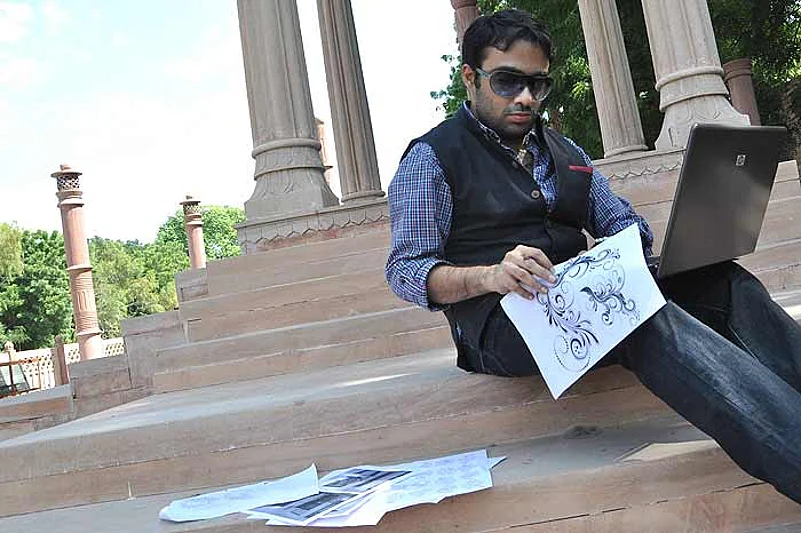Varun Singh Parihar comes from a family of lawyers. So it was a given that he would study to be a lawyer. He graduated in law, then went on to acquire two MBA degrees in marketing and human resources. Today, at 30, Varun is what he calls a lifestyle designer; he does up houses, designs clothes and organises events. He studied what his family expected him to, and then, after a few years, went to do exactly what he wanted to. “There are certain things that parents prescribe and you end up following them. So I did that for a while. Now, I do only what comes naturally to me,” he says.
Varun is still one of the few youngsters who pursue a course of education because their parents want them to, and soon enough go on to follow their heart to do what they are passionate about. But their numbers are certainly on the rise. “The profile of people switching careers or taking up something entirely different from what they have been trained for is definitely getting younger. People are no longer waiting for a mid-life crisis to strike them,” says Satya Narayan R. of Career Launcher. The trend has been most marked in the recent years. “Earlier, most people pushed into a profession would stick it out despite hating their job, owing to insecurity or fear of upsetting a settled life. There are many more breaking away now,” says Usha Albuquerque, a Delhi-based career counsellor.

Ditched the BCom Karan Nambiar found his calling in music
It’s a tough call. There are a thousand questions, a million doubts in a youngster’s mind before taking such a drastic step. The pressure to succeed in what you have chosen to do is immense as the family (and community) is watching you closely. Karan Nambiar, 22, was luckier. His parents advised him to complete his graduation before pursuing a career in music. So Karan is a BCom graduate and does many things—none of them remotely connected to commerce. He is a producer with Hit 95 FM, holds karaoke musical nights, and is the lead singer in his band Guillotine. “I have no use for my BCom degree now. I am very happy with my music. My parents have also been very supportive, which is what has made me more confident of chasing my dream,” he says. He may even pursue higher studies in mass communication in a couple of years.
Not everyone’s parents are like Karan’s, though. Despite a multitude of opportunities opening up, parents continue to guide their children into safe or time-tested careers; medicine, engineering, law and accountancy still rule in most of middle-class India. “For the large part, there is no real decision-making happening based on what you like and what you are capable of doing,” says Albuquerque. A study carried out last year by UK’s Tesco, the world’s third largest retailer, revealed that a third of British Asian graduates said family influenced their career choice. In comparison, only half the British student group said their family had any role in choosing their careers. Interestingly, among Asian graduates, while 18 per cent claimed to be strongly influenced by their family views, 37 per cent admitted their family’s wishes were paramount.

Abhay Rao in journalism. (Photograph by Apoorva Salkade)
In India, this percentage would be much higher, say career experts. But they do point to hopeful signs that a spirit of adventure might be taking hold of the young who, if not directly rebelling, are obliging their parents’ aspirations only to a point. The change is more apparent in cities where the youth are more exposed to opportunities and more so in families where the parents are not too bogged down by societal pressures. But convincing the elders about a career change is not easy. Abhay Rao, 25, took up a business development executive job after doing BCom and completing two levels of CA. He did it for three years, then quit to become a journalist with a leading business newspaper. It was only after many bylines and front-page stories that his parents were convinced of this move. “I am lucky that in my second chance I found something I enjoy. If I’d completed the CA, I would probably have never discovered what I like doing. There are many who would like to move out of their present careers but don’t dare to do it,” says Abhay. His younger sister Karishma, 21, a BCom graduate, has meanwhile decided to pursue an alternate career. “I am aiming to complete my CA as I am close to the final. But since I don’t want to be a practising CA, I have opted for law, which I am enjoying,” says Karishma. She had initially resisted following her parents choice of doing a commerce degree, but now feels it may be useful if she opts to become a corporate lawyer.
If she does and likes being a lawyer, she would only be part of less than 3 per cent students in the world who do what they like doing, as a Stanford University study discovered. The rest 97 per cent end up doing whatever is in vogue or are nudged into careers of others’ choosing. And for most students, it is not risk aversion but unwillingness to upset the family. Career counsellors say parents have to be more open about their children’s aptitude. At a time when universities are offering newer areas of specialisation, to be pushed into a groove to acquire a respectable or fallback degree is unfortunate, they say. Before that happens, the youth today has hit upon a formula where it’s win-win for both parties: do a course parents push you into, maybe even take up a job in that area, then quickly go on to chase your dream.


























